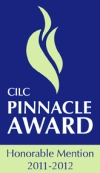As students and researchers in training, our mentors and professors train us to understand that our opinions do not count. Every statement or claim must be backed up by research. Students who offer an opinion without providing references are noted as making “sweeping generalizations”.
In order to be taken seriously by senior researchers, students and junior researchers in training must position themselves and humble askers of questions who claim to know nothing, except perhaps, how to ask a good question. Even that requires some training. A junior researcher who claims to be an expert is shunned by their peers and superiors.
As researchers gain experience, they learn to ask better questions. The develop research questions with laser-like focus. They refine their research skills. Their research reports become more sophisticated. Their manuscripts are accepted for publication by esteemed peer-reviewed journals.
As researchers publish more and more articles, books and reports, and present at more conferences the more their research becomes better known. As it becomes better known, it becomes more highly valued. The more their research is valued, the more the researchers are sought after as experts in the field. Unlike the junior researcher, the senior researcher who becomes known as an expert is humble enough (either by virtue or by virtue of being trained) to never refer to himself or herself as an expert. The title “expert” is conferred by others.
When someone is called an expert by others, suddenly their opinions matter again. People are not only interested in knowing what the research says, they are interested in knowing what the expert thinks, too. An expert is a trusted source and a thought leader. Experts can persuade others more easily than someone else, who is relatively unknown.
An expert’s influence is a veritable commodity when it comes to endorsements. A reference letter from an noted and widely recognized expert is much more valuable than a reference from an average professional.
It is not until someone else calls you an expert that your opinion matters. Then, it matters a great deal.
Even if your opinion hasn’t changed much since you were a junior in the field.
________________
Share or Tweet this post: The “Expert Paradox” http://wp.me/pNAh3-1pT
Update – January 2018 – This blog has had over 1.8 million views thanks to readers like you. If you enjoyed this post, please “like” it or share it on social media. Thanks!
Sarah Elaine Eaton is a faculty member in the Werklund School of Education, University of Calgary, Canada.


